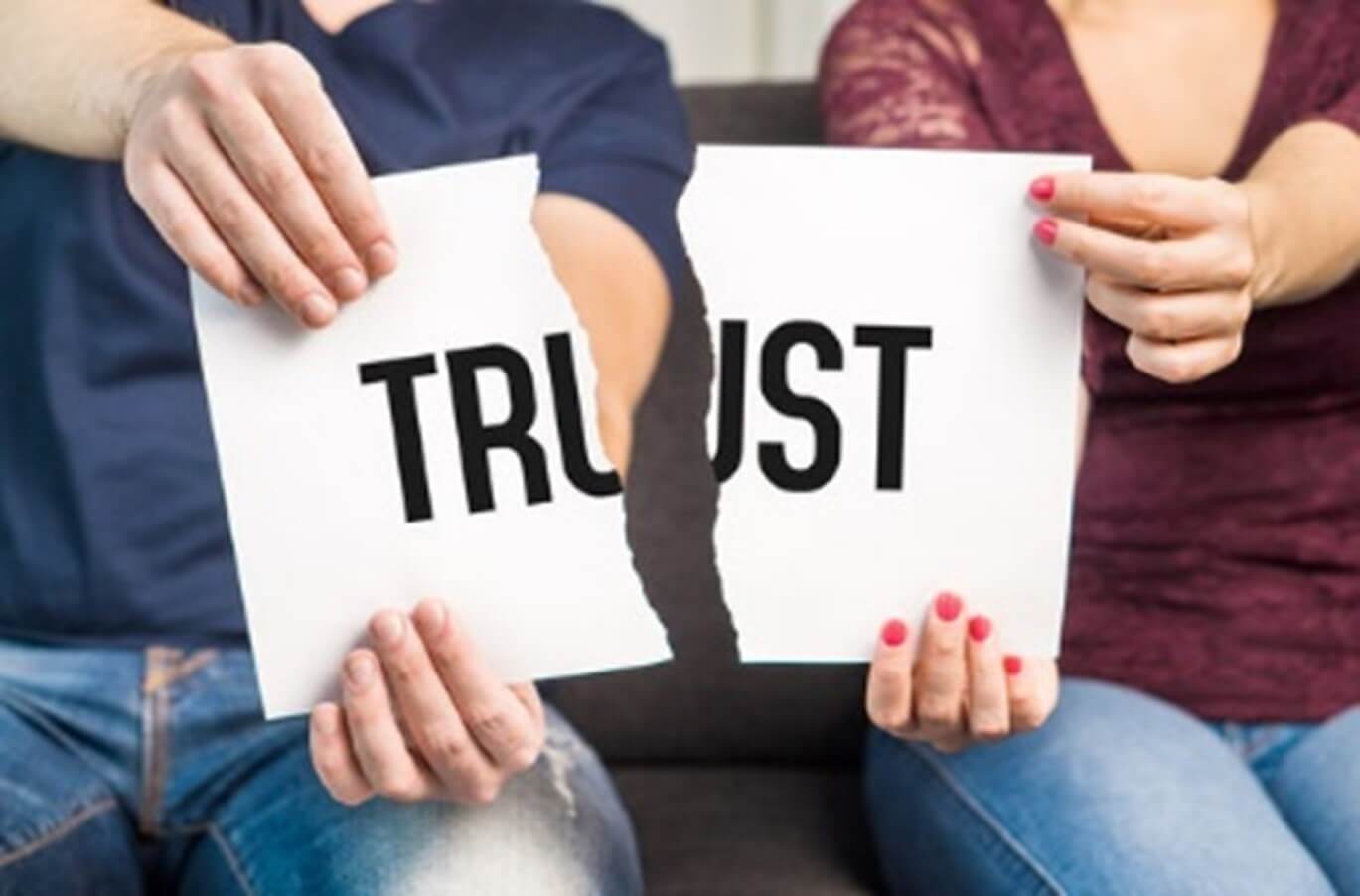Amidst life’s difficulties, we all yearn for the perfect partner, one who complements our strengths and shares in our joys. We crave the magic of healthy relationships where understanding, respect, and love flow effortlessly. Undoubtedly, such relationships are the cornerstone of a fulfilling life. They provide us with unparalleled support and growth. However, the world often romanticizes love’s tumultuous nature instead of such prosperous connections. And that’s when the fine line between love and toxicity blurs. How do we discern if we’re caught in the clutches of a toxic partner, and more importantly, could we unknowingly be the toxic force? Is it easy leaving a toxic relationship?

Beyond the surface, toxic relationships have far-reaching consequences on your mental and emotional well-being. Like a subtle poison, this negativity can seep into the very fabric of your existence. It casts shadows on your joy, self-esteem, and peace of mind. And when something meddles with your inner peace, unraveling its complexities and deciphering its signs becomes imperative. Most importantly, you must realize if you are unwittingly contributing to the toxicity lingering in the air. So, if you feel you and your partner are living in this cycle, here are some self-help tips to utilize and end it.
Toxic Partner Signs
Frequent Manipulation
When it comes to emotions, manipulation often wears many disguises, especially those of concern and care. It might be the gentle push that steers you away from your desires or the subtle suggestion that your feelings are irrational. When left unchecked, this manipulation can corrode the very foundation of a relationship. The first step in identifying a toxic partner is to be attuned to the more delicate aspects of behavior.
Do you find yourself constantly second-guessing your feelings or thoughts? Is there a persistent undercurrent of doubt sown by your partner? Emotional manipulation often involves the subtle erosion of your confidence. In fact, it leaves you unsure of your own reality. It could manifest as seemingly innocent comments that gradually chip away at your self-esteem.
You’d be surprised to know that every one in three young people are in an unhealthy relationship. It’s that common! So, if the thought of leaving your toxic relationship enters your mind, don’t just ignore it.
Forms of Manipulative Behavior in a Toxic Relationship
To truly understand emotional manipulation, it’s essential to recognize its various forms. Imagine your partner consistently undermines your achievements. They frame your successes as mere luck or fate. While it may seem like a casual remark, it plants seeds of doubt that can grow into a heavy sense of inadequacy.
Another common manifestation of manipulation is the art of guilt-tripping. Does your partner have a knack for making you feel responsible for their emotions or actions? It’s a subtle yet potent form of control that can leave you tethered to their needs and desires, neglecting your own.
Then comes gaslighting. This one has you questioning your reality and doubting your own sanity. Perhaps your partner employs silent treatments or passive-aggressive tactics, creating an atmosphere of tension and confusion. In such cases, you may consider leaving the toxic relationship on and off but avoid doing it.
Control and Dominance
In healthy partnerships, compromise and autonomy is vital. But what happens when one partner starts calling all the shots?
Control can be a chameleon, taking on different states that might initially go unnoticed. Are decisions in your relationship consistently made by one party, with little room for input from the other? This could be a telltale sign of controlling behavior. A partner’s insistence on having the final say in matters, big or small, may camouflage itself as a desire for order but ultimately mask a deeper need for dominance.
So, keep a watchful eye on your boundaries. Identifying signs of control means recognizing when your freedom to make choices is being subtly curtailed. If every decision, from what you wear to major life choices, is dictated by your partner, your individual growth is stifled. This can be your sign for leaving the toxic relationship.
Emotional Draining
When you hit the bed at night or make it through the day, do you feel drained rather than uplifted? If that’s the case, you must identify the reason behind this drainage. Are the constant fights with your partner contributing to this? The profound exhaustion accompanying constant negativity may be the reason, after all. It can even make you anxious, depressed, and stressed. And leaving a toxic relationship entails acknowledging this very problem. The emotional toll starkly contrasts the mutual support and encouragement that characterize healthy connections.
Repetitive Cycles of Conflict
The toxicity within a relationship reveals itself through persistent cycles of unresolved conflict. Leaving a toxic relationship requires an understanding that attempts at resolution often prove futile. The same grievances resurface cyclically.
In fact, you may find the sincerity of your partner’s apologies compromised, too. When apologies become mere Band-Aids over wounds that never heal, you start feeling trapped in a loop of hurt and remorse.
Lack of Trust

Without trust, no healthy relationship succeeds. So, identifying a toxic relationship requires assessing the level of trust you and your partner share. If suspicion and doubt permeate the relationship, they replace the once-sturdy foundation with an unsettling hollowness. And this hollowness often eats away at not just the relationship but also your mental wellness.
Isolation from Supportive Networks
To be happy, you need a strong support network to fall back on. The safety net “your people” create for you can benefit your mental health. However, a toxic relationship often exerts its influence by gradually isolating you from your support network. It may even discourage or sabotage your connections outside the relationship, thus creating an echo chamber of toxicity that hinders personal growth.
Disregard for Boundaries
Wouldn’t it be suffocating if someone was always keeping an eye on you? If your relationship doesn’t allow you the space to breathe or live your own life, that’s a huge red flag. It could be a sign for leaving the toxic relationship.
Personal boundaries are the safeguards of individual well-being within a relationship. So, identifying and leaving a toxic relationship requires acknowledging when these boundaries are breached with casual disregard.
Stagnation Instead of Growth
Partners are meant to help each other grow, whether in dreams and aspirations or personally. But when these dreams and aspirations enter a toxic atmosphere, they wither away the life inside you. And that should never be overlooked; it helps you move forward.
Poor Communication
You may have noticed how communication between you and your partner falters in the hustle of life. This reveals cracks in the foundation of your relationship. Do you find conversations marked by constant misunderstandings, where words seem to miss their mark? Now, that’s a sign of poor communication.
Stonewalling, avoidance, or dismissive attitudes are subtle indicators that the communication channels may be blocked. When communication becomes a battleground or a neglected corner, the consequences show through the relationship. In fact, the primary factor contributing to the dissolution of 67.5% of marriages was communication issues. Unspoken grievances fester, and emotional distance widens, creating a void that toxic behaviors may eagerly fill.
Constructive Criticism Versus Toxic Criticism
Undeniably, criticism has the power to either build or destroy. An essential step in recognizing a toxic partner requires distinguishing between constructive criticism and its more harmful counterpart. The former aims at improvement. It offers insights and suggestions without attacking one’s core identity. That’s how you reach growth and understanding within a relationship.
On the flip side, toxic criticism is a relentless force. It targets actions and the very essence of a person, putting them to shame and affecting their self-esteem. Consider it a barrage of negativity, belittling remarks, or an unrelenting focus on perceived flaws. Once you begin recognizing this difference, it will become easy to decipher whether your partner’s critiques are rooted in genuine concern or serve a more insidious purpose. If it’s the latter, you may consider leaving the toxic relationship.
Assessing Your Own Behavior
How often do you wonder who the actual problem in your relationship is? Is it you or your partner? With so many arguments pouring in, it becomes hard to see the reality. However, understanding the threads of your behavior is as crucial as grasping your partner’s actions. Let’s figure out whether you contribute to the toxicity within your relationship.
Importance of Introspection in a Toxic Relationship
Introspection is what helps you clear the fog. It allows you to see the landscape of your own emotions and actions more clearly. When it comes to relationships, emotions run high, and conflicts simmer beneath the surface. So, taking a moment for self-reflection can be highly beneficial.
But why is it so crucial? Introspection is a compass. It guides you through the maze of your own emotions and motivations. This is where you examine your responses, reactions, and the underlying triggers that shape your behavior. In a relationship, the ability to look within provides not only self-awareness but also a deeper understanding of how you contribute to the dynamics at play. Maybe you plan on leaving the toxic relationship, but fixing a few things about yourself could be all it takes to keep it intact.
Recognizing Patterns of Behavior in Oneself
Patterns, like the rhythm of a heartbeat, often repeat until noticed. As you engage in self-reflection, pay attention to recurring themes in your behavior. Are there specific situations that trigger certain reactions? Do you find yourself resorting to particular coping mechanisms when faced with conflict or stress?
Recognizing these patterns is the first step toward breaking the cycle of toxicity. It requires honesty with oneself and acknowledgment of the areas where growth is possible. Maybe you’ve identified moments of impatience, defensiveness, or an inclination to control. These patterns, once acknowledged, become your stepping stones toward personal development and healthier interactions.
Fixing a Toxic Relationship

Encouraging Open Communication with Your Partner
As we learned earlier, communication is a bridge connecting two shores. In the context of relationships, this bridge must withstand the weight of honesty and vulnerability. One way to reinforce this is by developing open communication with your partner. Encouraging dialogue, sharing feelings, and creating a space where concerns can be voiced without fear of judgment are crucial elements in maintaining a healthy connection.
Do you ever feel like asking your partner for feedback is a sign of weakness? Well, it’s not! Instead, it shows your commitment to growth. That’s how you invite them to share their perspectives on the relationship dynamics, allowing you to gain insights into how your actions impact them. A humble “How can I be a better partner?” can be the key that unlocks a wealth of understanding.
Being Receptive to Constructive Criticism
Once you receive the feedback, try to accept it with both humility and courage. Constructive criticism is not an indictment of your character but an opportunity for growth. It’s the mirror that reflects aspects of yourself that may have eluded your awareness.
So, what does being receptive to feedback mean? Actively listening, setting aside defensiveness, and embracing the chance to evolve. When you consider a collaborative effort to nurture your relationship, you’ll see changes you’ve never seen before.
Identifying Personal Growth Areas
Our personal growth never stops! And relationships help reflect our strengths and areas for improvement. This makes self-awareness is the next step in breaking toxic patterns. What triggers certain behaviors? How do you respond to stress or conflict? These are some important questions you must answer.
To begin your journey to personal growth, set realistic goals, seek support when needed, and cultivate mindfulness. It’s about creating a conscious space for self-reflection, understanding your emotional responses, and actively choosing healthier alternatives. As you identify your personal growth areas, remember that the goal is progress, not perfection.
Couples Therapy for Toxic Relationships

When you invest your heart and soul into a relationship, you do anything to fix whatever may seem broken. But sometimes, it may feel like things are completely out of your and your partner’s hands. If you believe you need help fixing your toxic relationship, therapy is a great option.
Does your relationship lack safety and structure like most toxic relationships do? Fortunately, couples therapy can provide a safe and structured space where both of you can express your feelings, concerns, and perspectives under the guidance of a trained professional.
A therapist’s unbiased perspective is like a mediator that helps untangle communication knots and facilitates a deeper understanding of each other’s needs and emotions. It equips you to solve conflicts, build empathy, and develop healthier patterns. It may be all you need to stop you from leaving a toxic relationship and work towards fixing it.
Individual Therapy for Personal Growth
While couples therapy addresses the collective dynamic, individual therapy helps personal growth. You venture into self-discovery, self-awareness, and healing. Therapists in individual sessions assist in the exploration of past experiences and patterns that may contribute to toxic behaviors. This introspection can lead to a better understanding of yourself. What’s more, the resilience you and your partner need to break free from unhealthy patterns and build a foundation for positive change starts here.
Defining Healthy Boundaries in a Toxic Relationship
Boundaries—those invisible but essential lines that define a healthy relationship’s contours are of utmost importance. They are the pillars that support each partner’s autonomy and well-being. But when you’re living together, these lines can become blurred. Thus, the balance between closeness and independence is compromised, as are feelings of security and respect.
But before setting boundaries, you must introspect. What are your needs? What are your limits? It’s an ongoing dialogue that establishes the rules of engagement and creates a framework for mutual understanding.
Boundaries, like words, only hold meaning when communicated. But that can often be daunting. How do you set boundaries without offending the other person? Clarity and empathy are the keys here. You must articulate what makes you feel comfortable or uncomfortable to create an environment where such communication is welcomed.
Don’t forget to be assertive, firmly committed to your well-being, and communicate when those boundaries are crossed. It won’t make you a bad person; it’ll just show your partner respect in supporting your limits, saving you from leaving the toxic relationship.
The Possibility of Leaving a Toxic Relationship
Do you know that feeling of stepping into the light after driving through a dark tunnel? Acknowledging the toxicity within a relationship is similar to that. Yes, it requires a lot of courage. But no matter how daunting it may be, it’s a crucial step toward reclaiming your happiness.
Think of it this way: endings, though painful, can also be beginnings. It’s about recognizing when the cost of staying outweighs the benefits. Perhaps the toxicity has become a relentless storm that obscures the joy and warmth you deserve. In these moments of decision, remind yourself it’s okay to prioritize your mental and emotional health. Nothing is more important than leaving a toxic relationship that’s killing your mental sanity.
Rebuilding a Healthy Partnership
However, suppose you still choose the path of rebuilding, especially if the relationship has positive aspects that make it worth salvaging. In that case, you and your partner will require commitment, growth, and mutual understanding. Rebuilding a healthy partnership involves a shared dedication to change fueled by the lessons learned from past challenges. It’s an opportunity for both of you to reflect on the patterns that led to toxicity and work collaboratively toward creating a nurturing environment. Pay special attention to your communication with each other here. It’s when you have honest conversations, vulnerability, and active listening that this process flourishes.
In the end, learn to prioritize your mental health above all else. If that’s missing and nothing else is helping, it’s best leaving a toxic relationship rather than letting it consume you completely.

